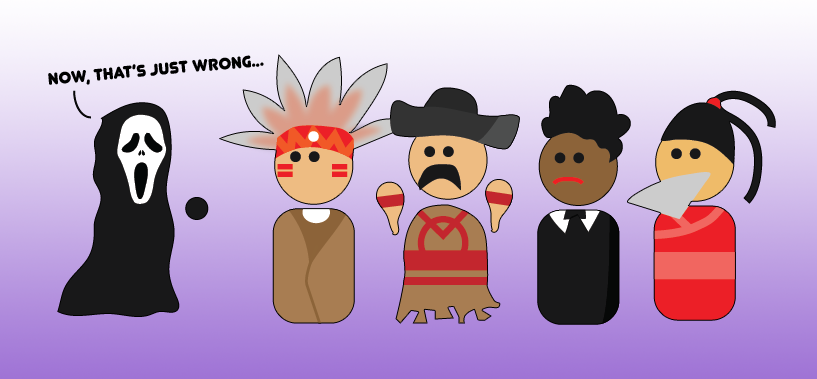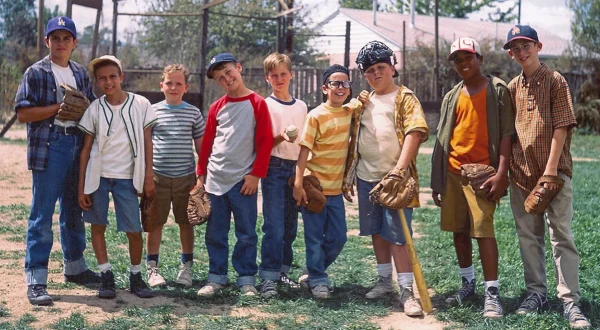Insensitive Halloween costumes have no place in 2019
Picking out a Halloween costume can be a lot of fun, but don’t be offensive to others.
We are currently in the midst of spooky season with Halloween right around the corner. The holiday spirit means candy, parties, creepiness, pumpkins and costumes, but oftentimes, the type of delicious treats is taken more seriously than the festive outfits themselves.
Although it is 2019, it feels inevitable that once again people will dress up in insensitive or discriminatory costumes. One would hope by now, people would put more careful thought into their costumes, and how what they are dressing up as might affect others.
If you are unsure if your costume is offensive, there are ways to find out. A couple of clicks on Google gives a quick and easy definition of cultural appropriation, as well as practical guides on what could potentially make an outfit offensive to a group or individual.
Cambridge Dictionary defines cultural appropriation as the “act of taking or using things from a culture that is not your own, especially without showing that you understand or respect this culture.”
In 2011, the Students Teaching About Racism in Society (STARS) organization at Ohio University began a campaign titled “We’re a Culture, Not a Costume.” The group used photographs to show the types of hurtful costumes that are more typical than they should be, illustrating racial and ethical stereotypes that run deeper than just some clothes and makeup.
There are better ways to dress up as someone of another race or ethnicity, if you must. For example, you can dress up as Beyoncé without painting your face darker to depict another race, also known as blackface.
Blackface has a long, deeply offensive and hurtful history to those in the African American community, according to CNN. Smithsonian’s National Museum of African American History and Culture (NMAAHC) explains the demeaning history of blackface, riddled with mockery and cliches of the African American community.
“Minstrelsy, comedic performances of ‘blackness’ by whites in exaggerated costumes and make-up, cannot be separated fully from the racial derision and stereotyping at its core,” according to the NMAAHC website.
It’s not a joke, it isn’t harmless, and like NMAAHC said, the mere fact that it may seem like just an outfit does nothing to reduce the years of derogatory typecasting that those in the minority have and continue to receive.
Of course it’s possible to try to do everything “right” and still offend an individual or a certain group, but then at least you’ll have somewhat of peace of mind.
When picking a costume this Halloween, please just consider how it could come across, whether or not it could cause harm toward minority groups who have a history of racial or ethnic stereotyping that unfortunately is still ongoing today. Just be mindful of the hurt it could cause others.
As shown on STARS’ 2012 campaign, “You wear the costume for one night. I wear the stigma for life.”







